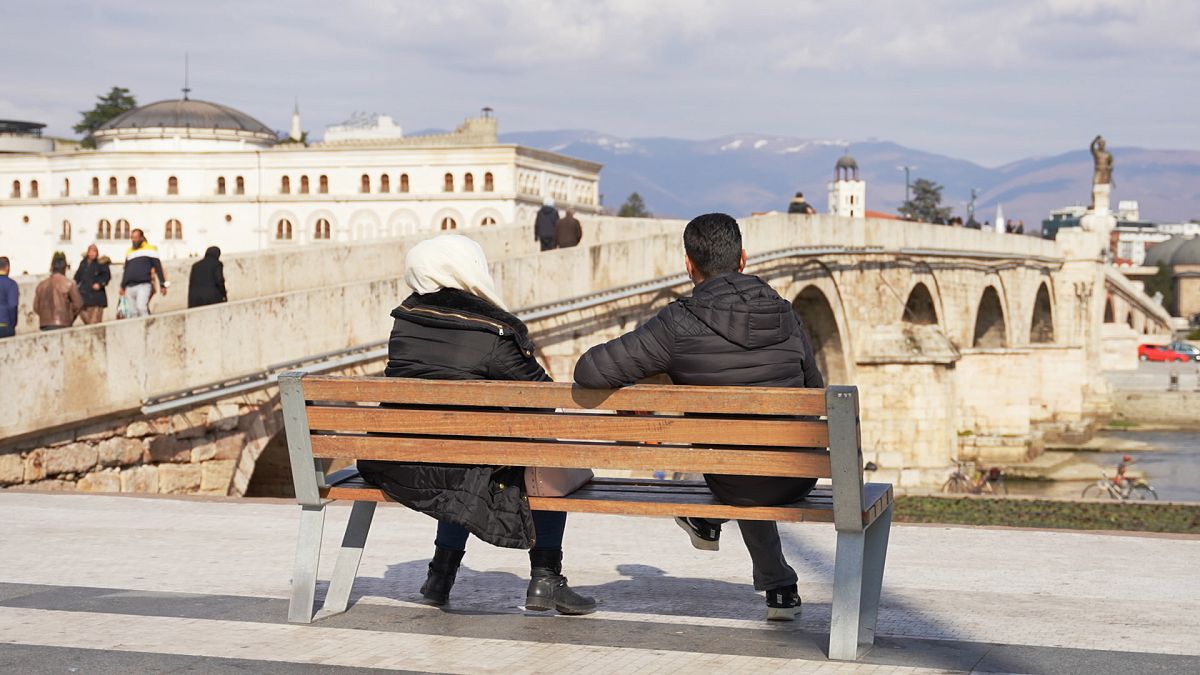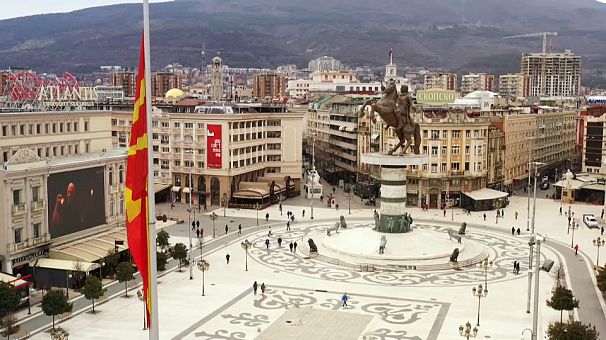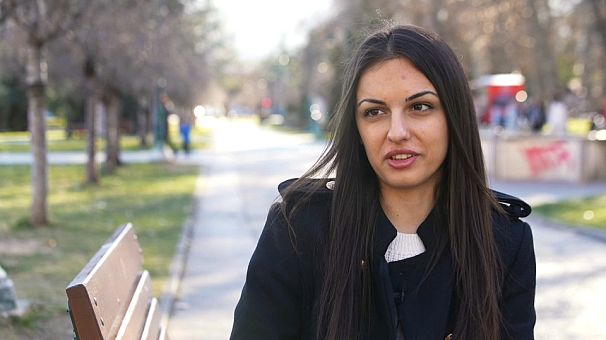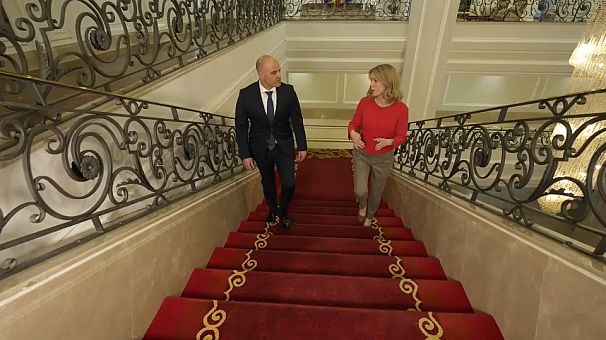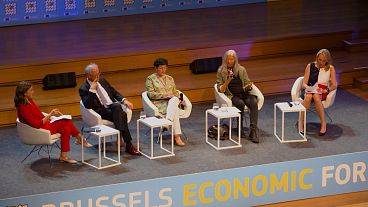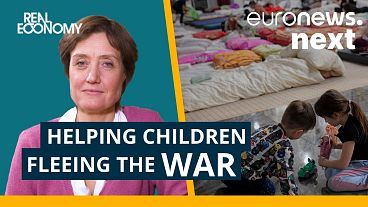In this episode, Real Economy travels to North Macedonia to find out about the EU's macro-financial assistance.
In this episode of Real Economy, we focus on EU macro-financial assistance - emergency financial aid given to neighbouring countries in times of crisis to help stabilise their economies.
Over the last 30 years, there have been 77 MFA operations worth 16 billion euros helping 27 countries. The most recent example was the 1.2 billion euros provided to Ukraine in solidarity with the Ukrainian people.
Macro-financial assistance (MFA) comes mainly in the form of loans with highly favourable terms and low interest rates. To get the money, countries must have signed up to a financing programme with the IMF, met conditions for respecting human rights and anti-corruption, and implemented democratic, economic and governance reforms.
The wider goal is to help ensure stability and prosperity beyond the EU.
North Macedonia
EU candidate country North Macedonia has received 160 million euros in MFA to help stabilise the country’s economy following the shock caused by the COVID-19.
The furloughing of a large number of workers resulted in a kind of scissor effect: on one hand, there was sluggish fiscal income, and on the other, it led to a sharp increase in public expenditure.
Added to that, foreign direct investment dried up, cutting the country’s trade balance.
The impact on young people
Since 2005, North Macedonia’s youth unemployment rate has been steadily falling, but in 2020, it spiked.
Marija Sepetovska, 23, found a job, thanks to the EU’s Youth Guarantee, put in place by the country’s agency for job seekers.
"Of course, it was a stressful time to start your career in the pandemic and especially for young people. I'm actually getting more and more confident, especially seeing that there are a lot of programmes which are supporting our country."
Marija admits some of her friends haven’t been so fortunate.
"It was very easy for me, but unfortunately, that's not the situation with a lot of other Macedonian young people. Some of them have a very harder time to find the great opportunity. So it is still not the best here," she adds.
The first tranche of macro-financial assistance was sent as emergency relief. For the second payment, North Macedonia had to meet a list of conditions. That included setting up a youth unemployment unit.
Explaining what the unit does, its head Goran Petkovski told Real Economy: "They participate, first in the development of the active labour market measures within the operational plan and how we can better target young people with this active market measures that we have. They are also responsible for the coordination of the jobs of youth counsellors within the local employment office and of course, for the monitoring and reporting of the Youth Guarantee."
The 160 million euros in emergency loans have helped North Macedonia navigate a tough economic period, but Shenaj Hadzimustafa, an Associate Professor in Business and Economics from South East European University believes the benefits will last long into the future.
"The money was needed for that period in order to finance some of the budgetary needs and balance of payments need. But on the other side, the reforms are the ones that are staying and will have a positive impact on the country. So these reforms, I think that should give their impact not only on the short run but also on the middle and long run."
Now in its fourth decade, the EU recently deployed 1.2 billion euros in macro-financial assistance to support Ukraine. The EU’s economy chief Paolo Gentiloni told Real Economy such support is crucial.
"We have an interest in the stability of the area. Stability for migration. Stability for peace, etc. And finally, we have enormous interest as trading partners of these countries because the member states of the European Union are by and large the main trade partner of all these countries." he said.
For more insight on how the EU's macro-financial assistance has helped North Macedonia, Real Economy's Naomi Lloyd spoke to the country's Prime Minister Dimitar Kovačevski.
Naomi Lloyd, Euronews:
"How much of a difference has the EU’s Macro-financial assistance made to the country?"
Dimitar Kovačevski, Prime Minister of North Macedonia:
"The EU's macro-financial assistance helped a lot to us, not only from the perspective of pure financial assistance, but also It helped to continue the reforms, which we have started in the field of public finance management and in the other fields. But it also gave a clear signal to the other international and financial institutions and donors with whom we are cooperating, that we have a stable economic policy in times of crisis."
Naomi Lloyd, Euronews:
"How difficult were those reforms to implement?"
Dimitar Kovačevski, Prime Minister of North Macedonia:
"The fight against the crime and corruption has given results as we have improved our position on the Transparency International reports. We have now went into a country which has democratic conditions in it because in the past, in the past there was deficiencies in the democratic procedures in the country. And we are very, very happy because of this."
Naomi Lloyd, Euronews:
"How do you ensure that the reforms don't stop here, but they fully implemented going forward?"
Dimitar Kovačevski, Prime Minister of North Macedonia:
"We have ensured that with European Union and European Commission institutions, we have regular coordination, so we have regular reporting. We also worked a lot on the implementation of internal mechanisms in the country and in the public institutions in order to ensure that these reforms are done."
Naomi Lloyd, Euronews:
"Now, North Macedonia is a candidate to join the EU. The next step is accession talks. How hopeful are you that they will begin soon?"
Dimitar Kovačevski. Prime Minister of North Macedonia:
"North Macedonia has a clear strategic goal to become a full member of the Euro-Atlantic associations. Last year, we celebrated the 30th anniversary of our independence, and this was accompanied by becoming the 30th member of Nato. We are already in the 17th year and still not starting the negotiations. Unfortunately, last year, there was another challenge which was imposed by the former Bulgarian government. With the two new governments, we started a new dialogue, so together with the Prime Minister of Bulgaria, we already had a meeting in Skopje in order to bring back the trust and the confidence.
